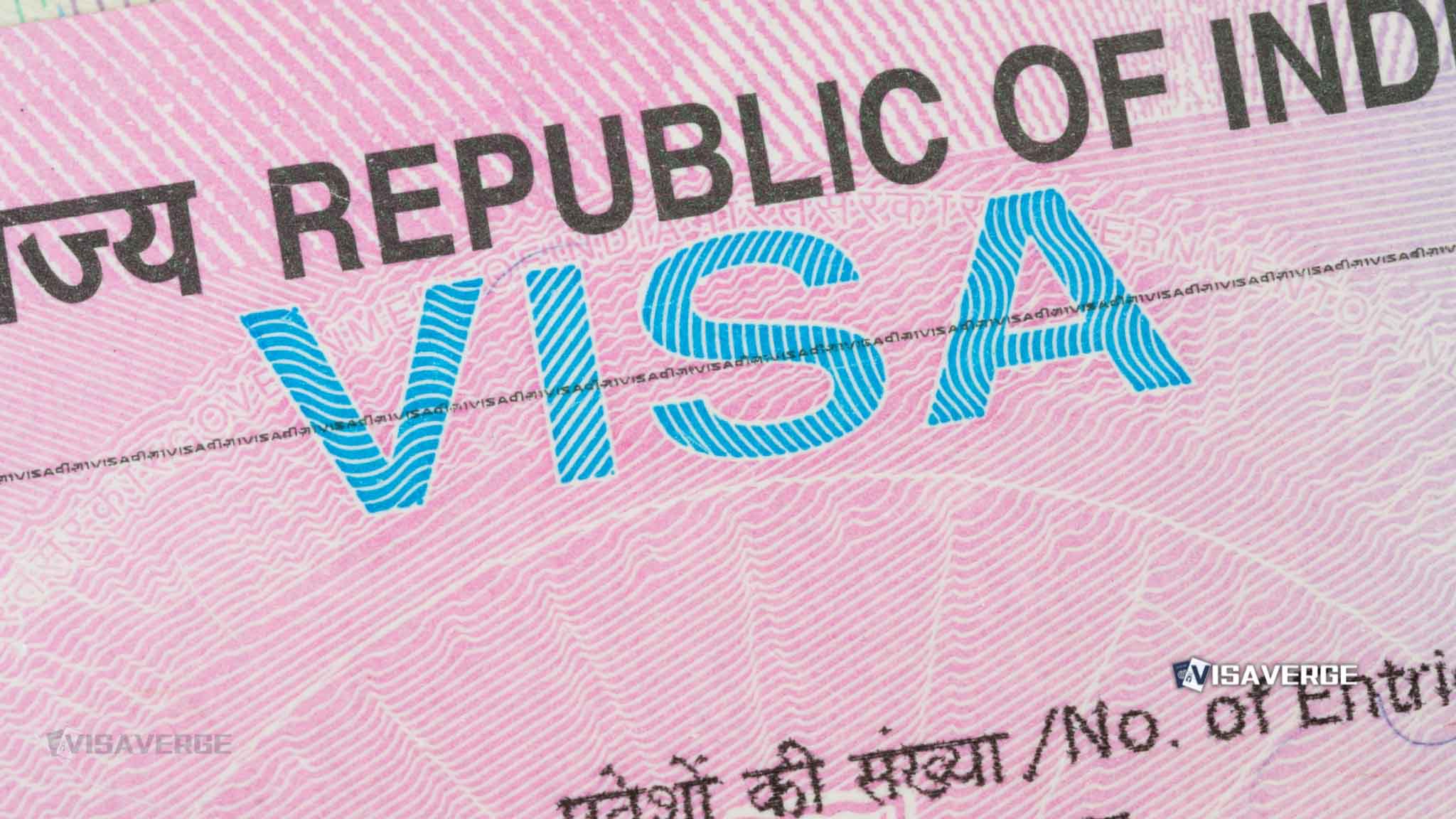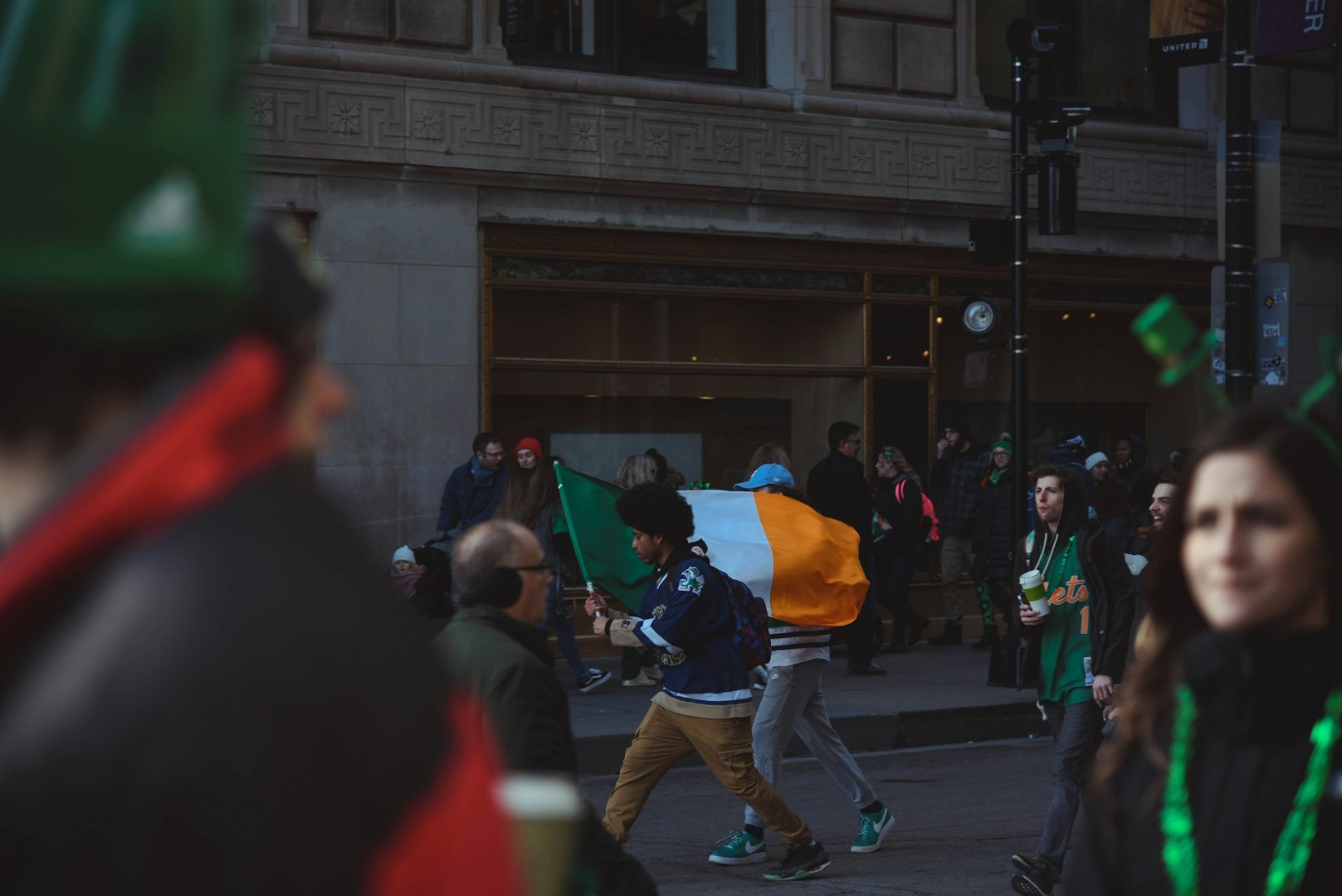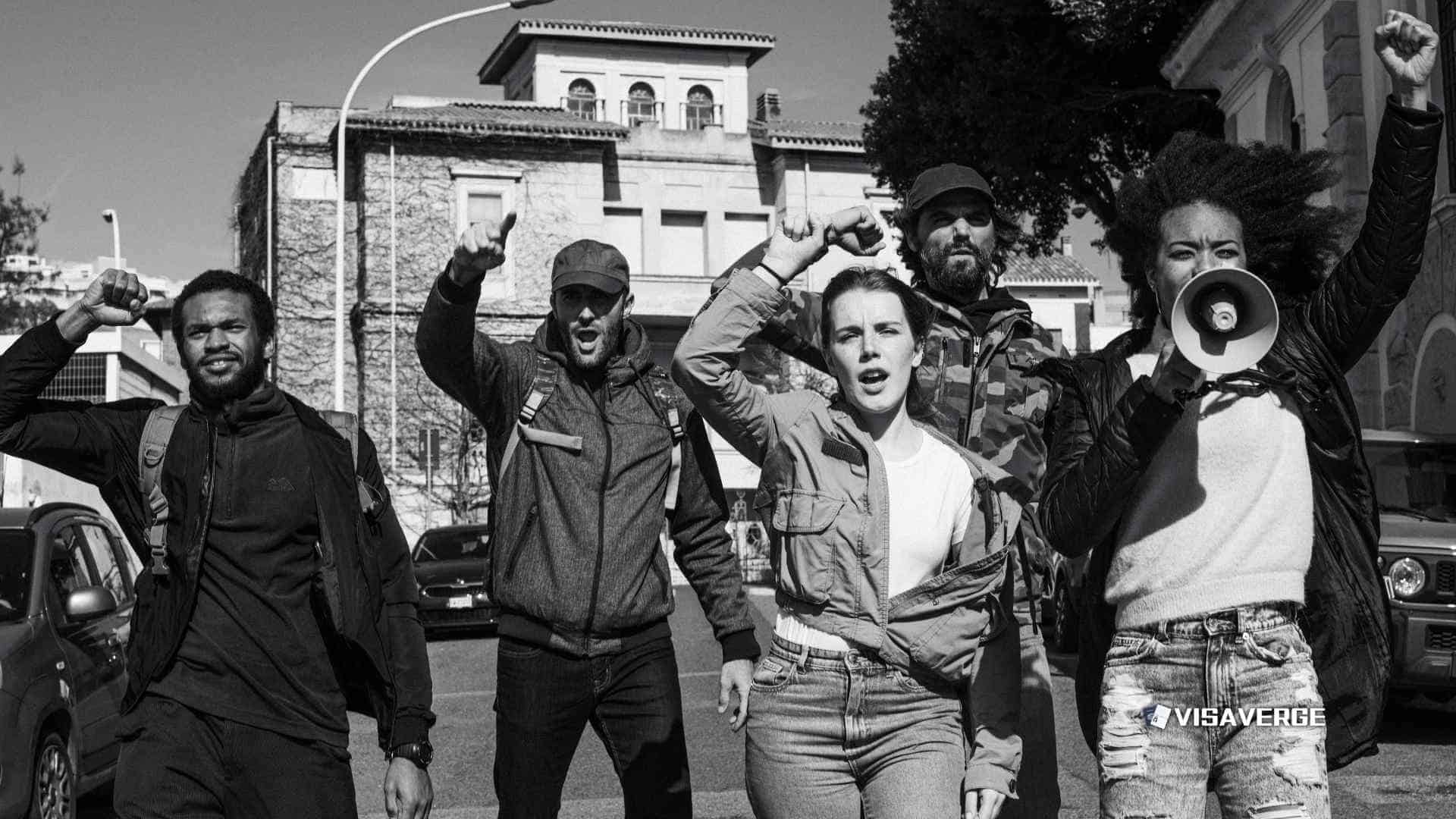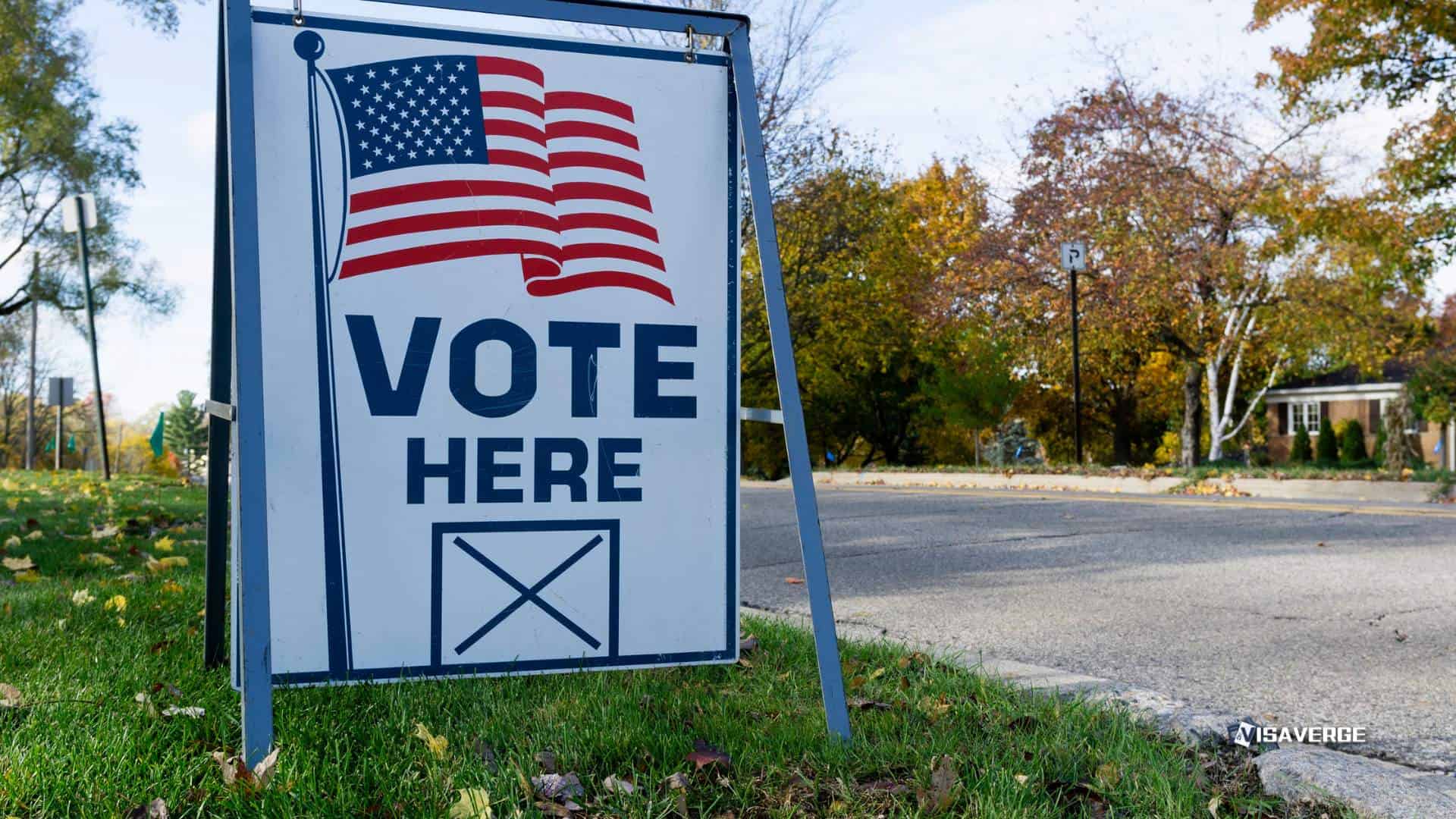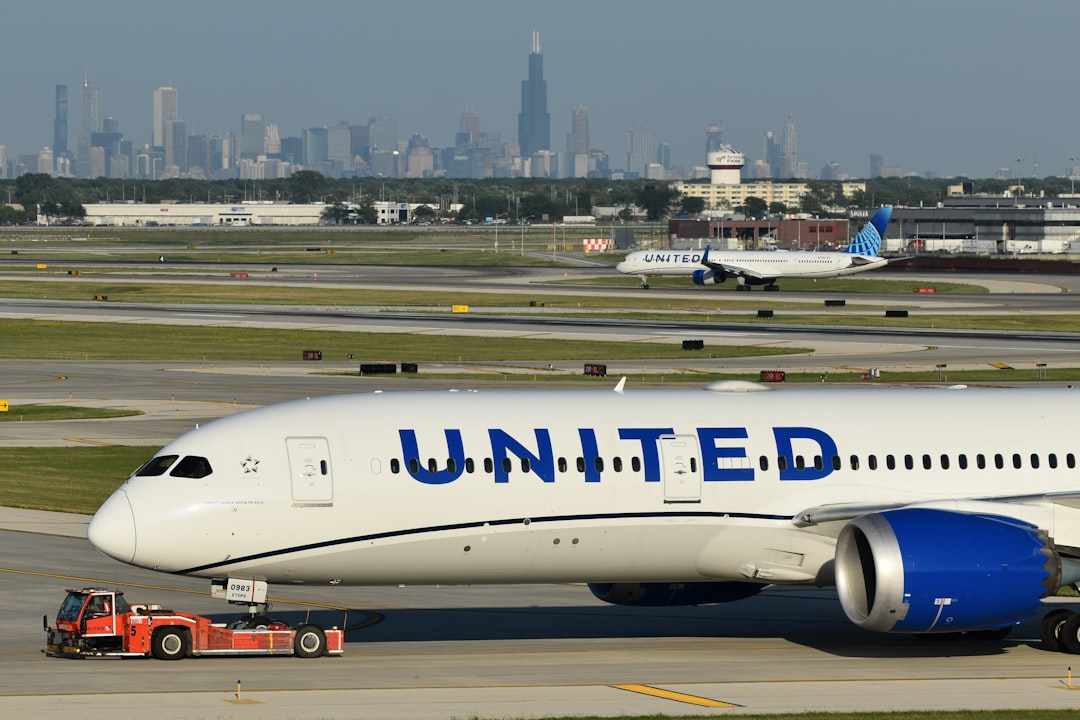Key Takeaways
• President Trump’s 2025 order ends automatic citizenship for children born on U.S. soil to noncitizen parents.
• Supreme Court ruled June 27, 2025, that nationwide injunctions blocking federal policies are generally prohibited.
• Maryland group filed a class-action lawsuit to protect birthright citizenship for children born to noncitizen parents.
A Maryland group is at the center of a major legal battle over birthright citizenship in the United States 🇺🇸, following President Trump’s executive order signed on January 20, 2025. This order seeks to end automatic citizenship for children born on U.S. soil to noncitizen parents, including undocumented immigrants. The move has sparked a wave of lawsuits, urgent court decisions, and deep concern among immigrant families and advocates across the country.
What Happened: The Executive Order and Immediate Response
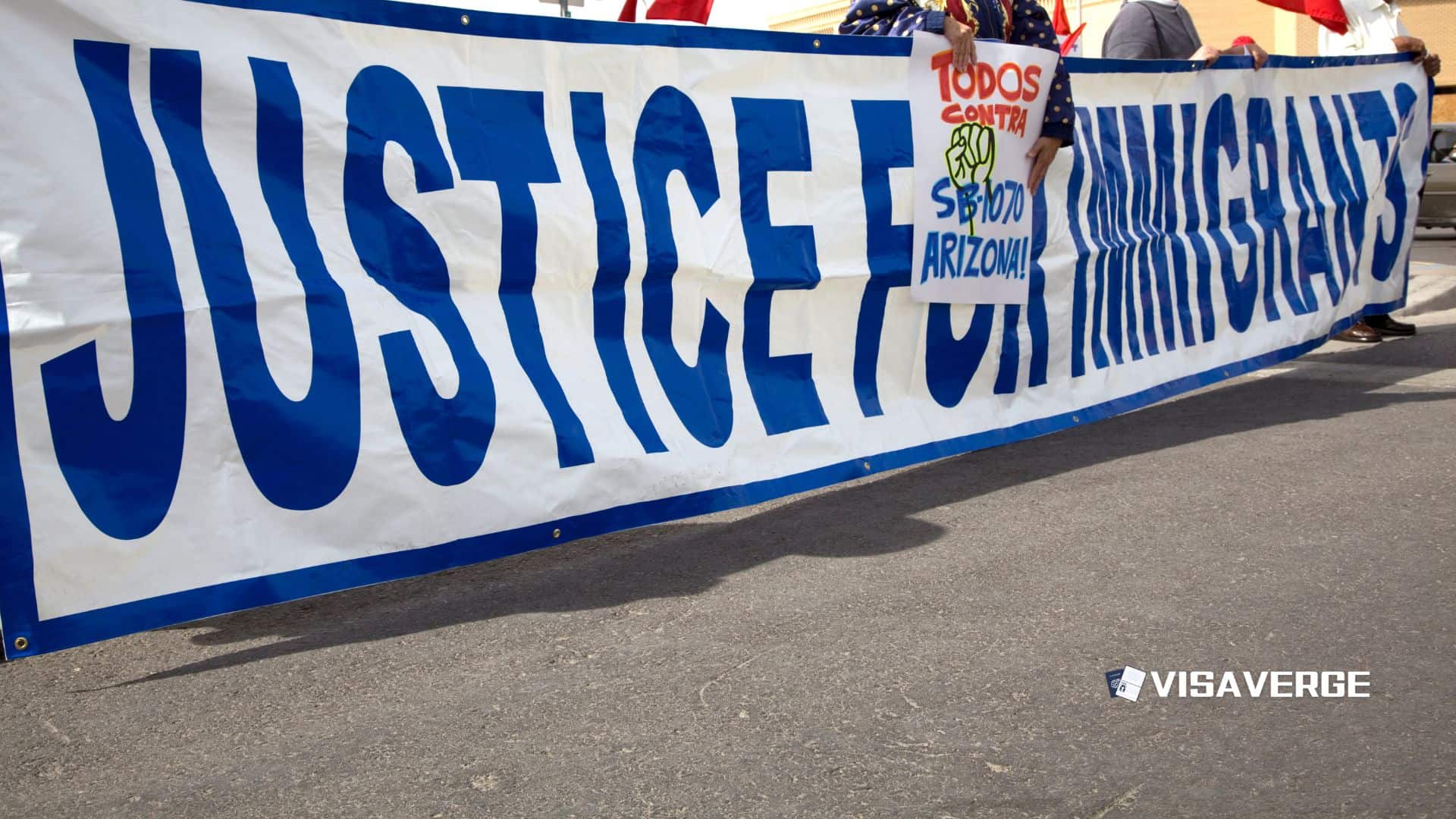
On his first day back in office, President Trump signed an executive order aiming to change how the United States 🇺🇸 interprets the 14th Amendment. For over 150 years, the 14th Amendment has been understood to grant citizenship to almost anyone born in the country, regardless of their parents’ immigration status. The new executive order challenges this tradition, stating that children born to noncitizen parents should not automatically become U.S. citizens.
The announcement triggered immediate legal action. Civil rights groups, immigrant advocates, and affected families quickly filed lawsuits in federal courts across the country. Judges responded by issuing temporary nationwide injunctions—court orders that stopped the executive order from taking effect while the legal challenges played out.
Supreme Court Ruling Changes the Legal Landscape
On June 27, 2025, the U.S. Supreme Court issued a decision that changed how these legal battles would move forward. In a 6-3 ruling, the Court said that nationwide injunctions—orders that block a federal policy everywhere in the country—are generally not allowed. Instead, courts can only block the executive order for the specific people or places involved in each lawsuit.
Key points from the Supreme Court’s decision:
– The Court did not decide if the executive order itself is constitutional.
– The ruling only addressed whether a single judge can block a federal policy nationwide.
– The executive order cannot go into effect for 30 days after the ruling, giving lower courts time to handle ongoing cases and decide if larger groups (classes) of people should be protected.
This decision means that the fight over birthright citizenship will now play out in many different courts, with different results possible in each state or region.
Maryland Group Takes Action: Class-Action Lawsuit Filed
In response to the Supreme Court’s ruling, a coalition of immigrant rights organizations in Maryland—including CASA Inc., the Asylum Seeker Advocacy Project, and a group of expectant mothers—filed a class-action lawsuit in federal court. Their goal is to block the executive order from being enforced in Maryland and to protect all babies born in the state to noncitizen parents.
What is a class-action lawsuit?
A class-action lawsuit is a legal case brought by a group of people with similar concerns. In this case, the plaintiffs want the court to protect all affected families in Maryland, not just the individuals who filed the lawsuit.
The Maryland group argues that without a class-wide court order, thousands of babies born in the United States 🇺🇸 could lose their right to citizenship just because of where they were born or which court is handling their case. They say this would violate the 14th Amendment and create unfair differences between states.
Similar Lawsuits Across the Country
The Maryland group is not alone. The American Civil Liberties Union (ACLU) and other organizations have filed similar lawsuits in states like New Hampshire, Maine, Massachusetts, and New York. These cases aim to protect families in those states from the executive order.
However, because of the Supreme Court’s recent decision, the protection offered by these lawsuits is now limited. Courts can only block the executive order for the people or groups directly involved in each case. This means that some children born in the United States 🇺🇸 may be recognized as citizens in one state but not in another, depending on ongoing court decisions.
What This Means for Families: Unequal Protections by State
The biggest impact of these legal battles is that birthright citizenship protections now depend on where a child is born. For example:
– A child born in Maryland or California might still be recognized as a U.S. citizen if there is an active court order protecting families in those states.
– A child born in Texas or Florida might not have the same protection if no court order is in place there.
This patchwork system creates confusion and fear for many immigrant families. Parents worry that their child’s future could depend on something as simple as the state where they give birth.
Legal experts warn that:
– The new system could lead to unequal treatment of children based on geography.
– Families may feel forced to move to states with stronger legal protections.
– The situation could create long-term legal and social problems, as children’s citizenship status may be questioned or challenged in the future.
Why Birthright Citizenship Matters
Birthright citizenship is a core part of American law and identity. The 14th Amendment, adopted in 1868, says that “all persons born or naturalized in the United States 🇺🇸, and subject to the jurisdiction thereof, are citizens of the United States 🇺🇸 and of the State wherein they reside.” This has been understood to mean that almost every child born on U.S. soil is a citizen, no matter their parents’ status.
Why is this important?
– Citizenship gives people the right to live and work in the United States 🇺🇸, vote in elections, and receive government benefits.
– It protects children from being stateless—having no country that recognizes them as citizens.
– It helps families stay together, as parents and children with different citizenship status can face separation.
Advocates for immigrant rights say that changing this rule would harm families and go against the country’s values. They argue that the executive order is an attempt to take away a basic right that has existed for generations.
The Trump Administration’s Position
Supporters of the executive order, including President Trump and his administration, argue that the policy is a lawful use of presidential power. They say it is needed to address concerns about illegal immigration and to make sure that citizenship is not given automatically to children of people who are in the country without permission.
However, the Supreme Court has not yet decided if the executive order is constitutional. That question will be answered in future court cases.
What Happens Next: Ongoing Legal Battles
The next steps in this fight will take place in lower federal courts. Judges in Maryland and other states will decide whether to grant class certification—meaning they will decide if the lawsuits can protect large groups of people, not just the individuals who filed the cases.
Key upcoming events:
– The federal court in Maryland will hear arguments from the Maryland group and the government about whether to block the executive order for all affected families in the state.
– The First Circuit Court of Appeals will hold a hearing on August 1, 2025, in a related case from New England. The outcome could affect how other courts handle similar lawsuits.
– The executive order cannot be enforced until at least 30 days after the Supreme Court’s June 27 ruling. During this time, courts will decide if more families should be protected.
Depending on the results, the executive order could be enforced in some states but not others, or it could be blocked for larger groups if courts approve class-action protections.
Broader Implications: Who Is Affected?
The outcome of these legal battles will affect many different groups:
– Immigrant families: Parents who are not U.S. citizens worry about their children’s future and whether they will be recognized as citizens.
– Expectant mothers: Some may consider moving to states with stronger legal protections or delaying giving birth until the legal situation is clearer.
– State governments: States may face pressure to take action or pass their own laws to protect or restrict birthright citizenship.
– Employers and schools: They may have to deal with new rules about who is considered a citizen for work, education, and benefits.
– The federal government: The Trump administration will continue to defend the executive order in court, while Congress may face calls to clarify or change the law.
Expert Opinions: What Legal Scholars and Advocates Say
Legal experts say that the Supreme Court’s decision to limit nationwide injunctions is a major change in how courts handle big policy disputes. In the past, a single judge could block a federal policy everywhere in the country. Now, each case may only protect the people or places directly involved.
According to analysis by VisaVerge.com:
– This new approach could make it harder for immigrant rights groups to protect large numbers of people at once.
– It may also lead to more lawsuits in more states, as groups try to win protections for their members.
– The situation is likely to remain confusing and uncertain until the Supreme Court or Congress makes a final decision about birthright citizenship.
Advocates for immigrant rights say that birthright citizenship is a basic promise of the Constitution and that any attempt to change it should be decided by Congress, not by executive order. They warn that the current legal patchwork could leave many children in limbo, unsure of their rights and future.
Official Resources and Where to Get Help
If you or your family may be affected by these changes, it is important to stay informed and seek legal advice. Here are some helpful resources:
– The American Civil Liberties Union (ACLU) provides updates and information about birthright citizenship and ongoing lawsuits.
– CASA Inc. and the Asylum Seeker Advocacy Project are leading organizations in the Maryland group’s lawsuit and can offer support to affected families.
– Federal court websites, such as the U.S. District Court for the District of Maryland, provide official information about ongoing cases and court decisions.
What Should Families Do Now?
With the legal situation changing quickly, families should:
– Stay updated on court decisions in their state.
– Seek legal advice from trusted organizations or immigration lawyers.
– Keep records of their child’s birth and any documents related to citizenship.
– Contact advocacy groups like CASA Inc. or the ACLU for support and information.
It is also important to remember that the executive order is not currently being enforced, and court battles are ongoing. The final outcome may take months or even years to be decided.
Conclusion: A Critical Moment for Birthright Citizenship
The fight over birthright citizenship in the United States 🇺🇸 is far from over. The Maryland group’s class-action lawsuit is just one part of a larger struggle playing out in courts across the country. The Supreme Court’s recent decision has made it harder to block federal policies everywhere at once, leading to a confusing and unequal system where a child’s citizenship may depend on their state of birth.
As legal battles continue, families, advocates, and officials will be watching closely to see how courts and lawmakers respond. For now, the best advice is to stay informed, seek help if needed, and be prepared for further changes as the story unfolds.
Learn Today
Birthright Citizenship → Automatic U.S. citizenship granted to almost all children born on American soil regardless of parents’ status.
Executive Order → A directive issued by the President that manages federal government operations and policies.
14th Amendment → Constitutional amendment granting citizenship to all persons born or naturalized in the United States.
Class-Action Lawsuit → A legal case filed by a group sharing similar legal claims seeking collective protection.
Nationwide Injunction → A court order blocking a federal policy across the entire country until further legal review.
This Article in a Nutshell
Maryland organizations challenge Trump’s 2025 order ending birthright citizenship. The Supreme Court limits nationwide injunctions, fragmenting protections. Families face uncertain citizenship, depending on state court rulings amid ongoing legal battles and nationwide effects on immigrant rights.
— By VisaVerge.com


